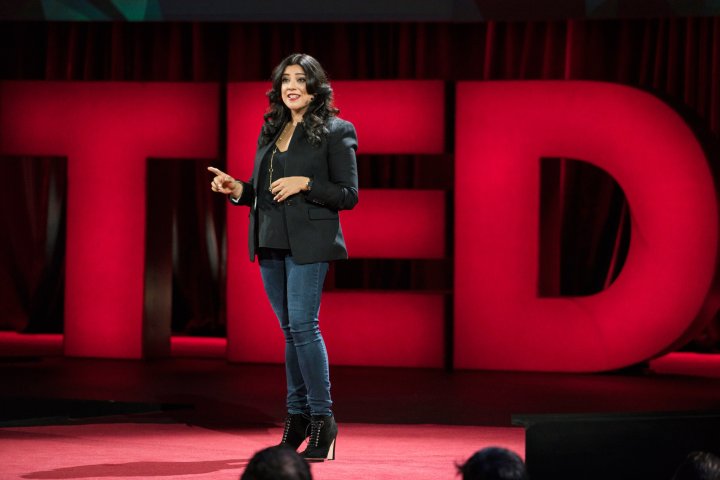What was your goal when you founded Girls Who Code in 2012? Everyone thinks you have to be supersmart or that only certain people can code—that’s just not true. It’s all about problem-solving, figuring out how to go from point A to point B. And succeeding at something you never thought you could is powerful. You take that feeling with you and use it in all aspects of your life, whether it’s public speaking, starting a club, or traveling the world.
You said in your 2016 TED Talk that you want girls to feel comfortable being imperfect. Why is that important? We tell our daughters, “Be careful, honey. Don’t get your dress wet,” while we’re letting our boys crawl to the top of filthy monkey bars. I think by teaching girls to be [dainty], we’re silencing their voices and their ambitions. I want to encourage girls to be brave—and that’s not just about raising your hand or asking for more money at work. It’s doing what you love, even if it scares you.
Why do we need Girls Who Code right now? Everybody has a device attached at the hip, and yet we’re leaving half the population out of that progress. The technology field is where new jobs are being created, and if we want to increase opportunities for women and girls, it has to be in that field.
You were the first Indian-American woman to run for U.S. Congress, in 2010. What did you learn from that experience? That it’s important to not live a life of regret. I’d been passionate about public service my whole life, but I wasn’t pursuing it because I was afraid. So, at age 32, I decided to run for Congress. I thought I could shake every hand, meet every voter, run a campaign centered on the importance of technology, and win, but I didn’t. And it still ended up being the best 10 months of my life because it rocked my complacent world. I got addicted to the energy that comes from doing what you want, regardless of the outcome.
What does it mean to you to stand up as a voice for young women? I’m the daughter of refugees. My family came up from nothing so I could have an opportunity to live the American dream. I want to make sure other girls have that chance too. And I think it’s happening with Girls Who Code.
What are you most proud of? I’m proud of my son, whom I’m raising to be an amazing feminist. He’s only 3, but I’m proud of him because I see his compassion and humanity. We can’t forget about our boys in terms of raising them to support female leaders. But I will be the most proud when I see girls finding a cure for cancer or building the first rocket to Mars.


